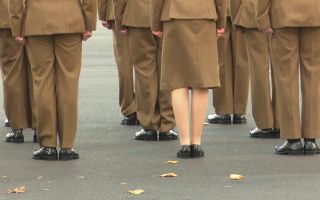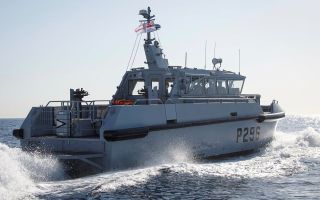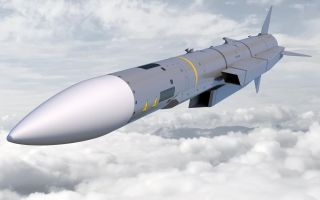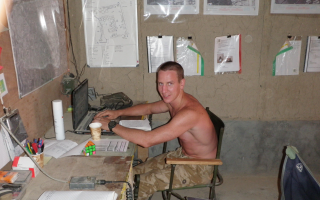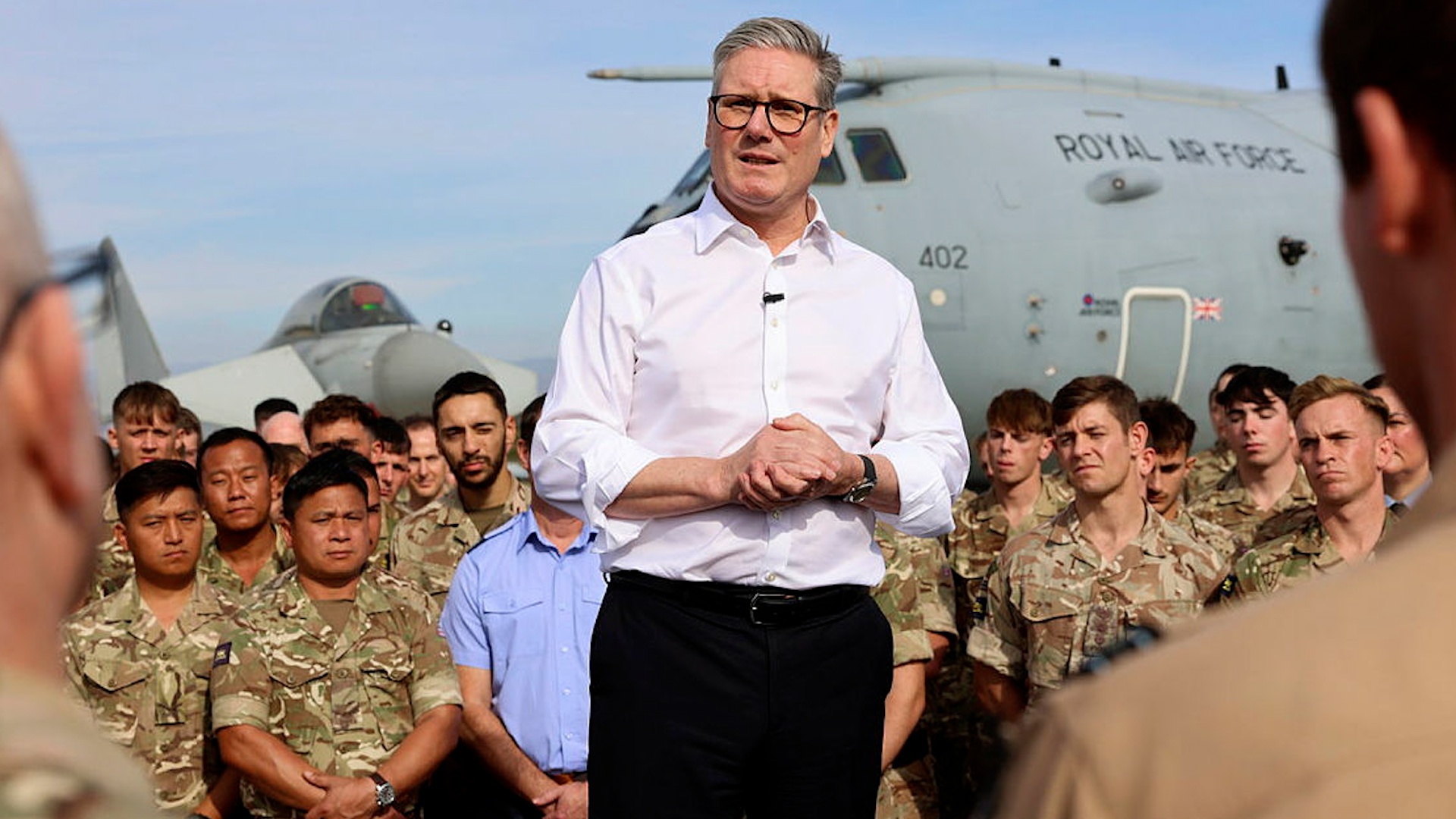
Peace through strength as PM pledges to hit 2.5% GDP defence spending by 2027

Spending on defence will reach the Government's set target of 2.5% of GDP by 2027, the Prime Minister has announced.
Sir Keir Starmer told the Commons that Britons had the right to be secure, and peace came through strength.
He said: "We must find courage in our history, courage in who we are as a nation, because courage is what our own era now demands of us.
"So starting today, I can announce this Government will begin the biggest sustained increase in defence spending since the end of the Cold War.
"We will deliver our commitment to spend 2.5%. of GDP on defence, but we will bring it forward so that we reach that level in 2027, and we will maintain that for the rest of this Parliament.
"And let me spell it out, that means spending £13.4bn more on defence every year from 2027."
Pete Hegseth, the US Secretary of Defense, tweeted he had a phone call with his UK counterpart John Healey who confirmed the news to him.
"A strong step from an enduring partner," he said, in the post.
Tyrants only respond to strength
Sir Keir added: "We should not pretend that any of this has been easy. Working people have already felt the cost of Russian actions through rising prices and bills.
"Nonetheless, one of the great lessons of our history is that instability in Europe will always wash up on our shores, and that tyrants like Putin only respond to strength.
"Russia is a menace in our waters, in our airspace and on our streets.
"They have launched cyber attacks on our NHS, only seven years ago a chemical weapons attack on the streets of Salisbury.
"We must stand by Ukraine, because if we do not achieve a lasting peace, then the economic instability are threats to our security, they will only grow.
"And so as the nature of that conflict changes, as it has in recent weeks, it brings our response into sharper focus, a new era that we must meet as we have so often in the past, together and with strength."
Nato remains the bedrock
He told MPs Nato would remain the bedrock of national security and the UK must reject any "false choice between our allies".
Sir Keir explained: "When I meet President Trump, I will be clear I want this relationship to go from strength to strength, but strength in this world also depends on a new alliance with Europe."
He said the Government would seek peace not conflict, adding: "We believe in the power of diplomacy to deliver that end. That, of course, is most pressing in Ukraine."
Stand up and be counted
"The first test of our defence policy is of course whether it keeps our country safe. But the second should be whether it improves the conditions of the British people.
"Does it help provide the economic security that working people need because ultimately, as Attlee and Bevin knew, that is fundamental to national security as well.
"We will use this investment as an opportunity. We will translate defence spending into British growth, British jobs, British skills, British innovation. We will use the full powers of the Procurement Act to rebuild our industrial base."
Sir Keir said reviews under way, including the Strategic Defence Review, must pull together.
"At moments like these in our past, Britain has stood up to be counted, it has come together and it has demonstrated strength," he continued.
"That is what the security of our country needs now and it is what this Government will deliver."
Hard choices to fund plan
Sir Keir explained how the additional funding for defence would be raised - via a cut to UK overseas aid.
He said: "In the short term, it can only be funded through hard choices, and in this case that means we will cut our spending on development assistance, moving from 0.5% of GNI [gross national income] today, to 0.3% in 2027, fully funding our increased investment in defence."
Putin only comes back for more
Conservative leader Kemi Badenoch said her party stood resolutely with the people of Ukraine.
She highlighted the UK's support for Kyiv before adding: "It is also true that overall the West has not done enough to support Ukraine."
Mrs Badenoch said it remained for Ukraine to decide its future, explaining: "We want this terrible war to end, but Ukraine needs to be at the negotiating table and, like President Zelensky, we hope for a lasting, viable peace.
"But the West must continue to be intensely robust in the face of Putin's aggression.
"The lesson of the last 20 years is clear: he only comes back for more."
Linking hands
Former Conservative Party leader Sir Iain Duncan Smith urged Sir Keir to convince US President Donald Trump to "link hands" with the UK.
He said: "[Sir Keir] might just go and remind the President that the last great test that we faced united the United Kingdom and America, with Lady Thatcher and Ronald Reagan taking decisions that moved Europe in the right direction.
"Can he appeal to him instead of running around making adverse comments, perhaps to link hands with the United Kingdom, to persuade the rest of Europe to step up, as we are now stepping up?"
Sir Keir replied: "This isn't about just stopping the fighting. It is about an enduring and lasting peace for Europe and of course the sovereignty of Ukraine, the sovereign ability to choose the alliances that Ukrainian people want, to choose their own government, to choose how they defend themselves in conjunction with others.
"That is the sovereignty that is an issue here.
"This isn't just about the sovereignty of Ukraine... it is also about the values and freedoms across Europe, including our values and freedoms.
"And that is why this is such an important moment to ensure that Nato is as strong as we go forward as it's been in the last 75 years, and that that bond between us and the US is as strong as it's ever been."
Tan Dhesi, Chair of the Defence Select Committee said he welcomed the move by the Prime Minister, saying it was "a dangerous moment for the UK's defence and security – a moment where we must come together as a nation".
"We must be clear-eyed about the threats we face," he said.
"Russia's invasion of Ukraine is an attack on peace, prosperity and the democratic principles that underpin our way of life.
"We must also consider the wider challenges to our security which will require both policy and action.
"It is now evident that Europe must play a greater role in the defence of Ukraine and in guaranteeing the future security of our continent, and the UK Government must demonstrate leadership."
Mr Dhesi added that while today's commitment was "important", it was a "first step" and it was important how the money was spent, not just "a matter of how much we spend".

